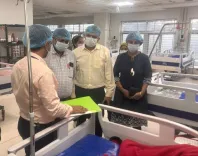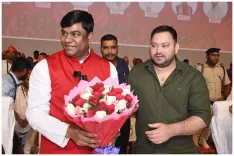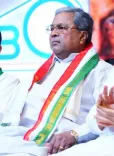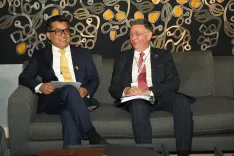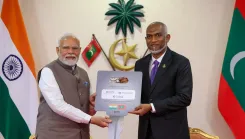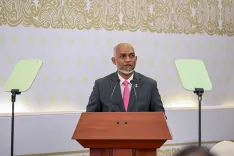How Can Global South Countries Learn from India’s Development?
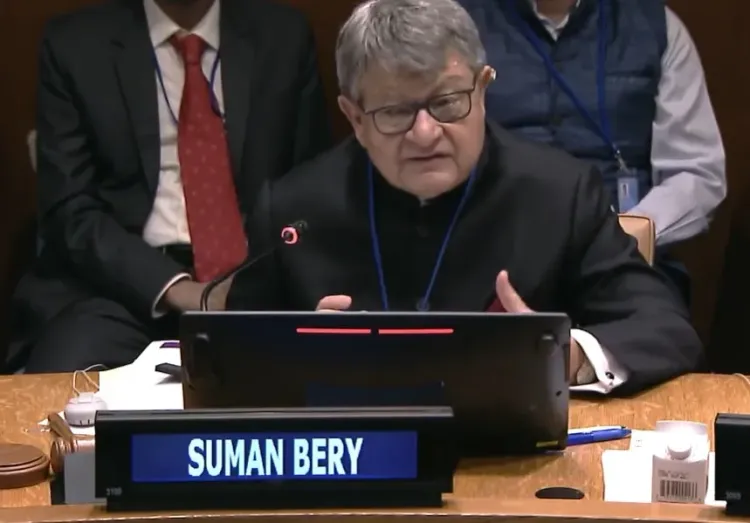
Synopsis
Key Takeaways
- India has successfully lifted over 171 million people out of extreme poverty.
- The Global South is increasingly looking to India for development lessons.
- The Aspirational Districts Programme focuses on the strengths of underdeveloped areas.
- India's Digital Public Infrastructure is garnering global interest.
- The inclusion of the African Union in the G20 signifies a shift in global dynamics.
United Nations, July 25 (NationPress) Many nations within the Global South, particularly those in Africa, are eager to learn from India’s remarkable success in elevating over 171 million individuals from extreme poverty within a decade. This information comes from NITI Aayog Vice Chairperson Suman Bery. High-ranking ministers and development officials from various Global South nations convened with Bery during the recent High-level Political Forum on Sustainable Development, seeking insights into India’s operational models and what valuable lessons can be gleaned, he shared in an exclusive interview with IANS.
The enthusiasm was notably pronounced among African nations, particularly in light of India's achievement in integrating the African Union into the G20, according to Bery.
This move has been met with widespread appreciation, leading several African nations to request meetings to discuss further collaboration.
During last year's G20 Summit in New Delhi, Prime Minister Narendra Modi welcomed the 55-member African Union as a permanent member, granting it a status akin to that of the European Union among developed and major emerging economies.
Bery noted, “There exists a sense that India has pioneered certain methods that others wish to explore further.”
There is significant interest in India’s Digital Public Infrastructure (DPI), particularly due to the newly established systems that allow for scalability and dissemination.
“Our Aspirational Districts Programme has also garnered attention, especially regarding our management strategies,” he stated.
This program aims to swiftly transform 112 of India’s most underprivileged districts by focusing on their unique strengths while localizing the UN’s Sustainable Development Goals, as explained by NITI Aayog.
Bery expressed surprise at the extensive collaboration already in place, recalling a meeting with an African minister who spoke highly of India’s emergency aid initiatives.
“A lot is happening,” he remarked. “Such initiatives need to be executed at a decentralized level, and the necessary frameworks are now established.”
For leaders seeking assistance in developing their own programs, Bery indicated that Indian diplomatic missions in those nations would follow up to ensure that India's expertise is accessible to African countries.
This will form a comprehensive effort by the Indian government to provide support, he noted.
Despite being a smaller entity, NITI Aayog actively contributes to these efforts through training opportunities and visits from various countries.

